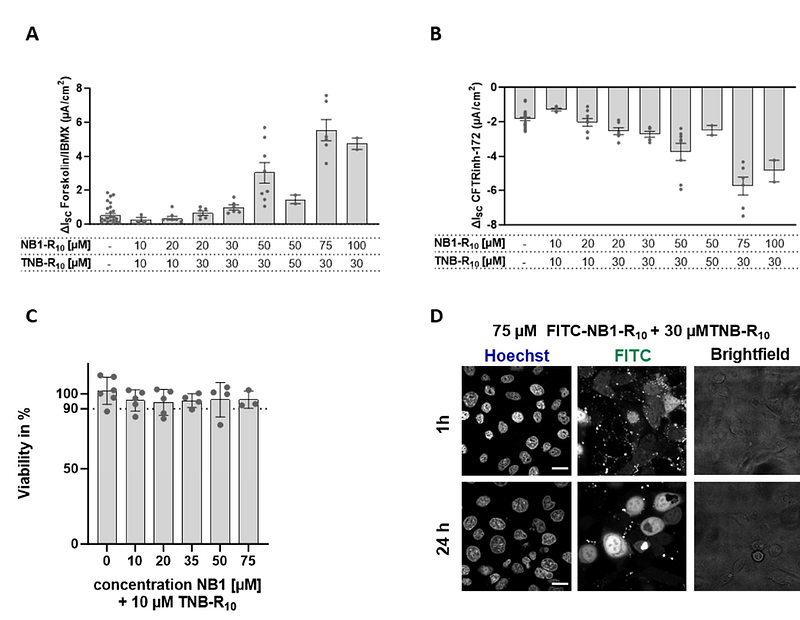A Cell-Permeable Nanobody to Restore F508del Cystic Fibrosis Transmembrane Conductance Regulator Activity

A Cell-Permeable Nanobody to Restore F508del Cystic Fibrosis Transmembrane Conductance Regulator Activity
Franz, L.; Rubil, T.; Balazs, A.; Overtus, M.; Kemnitz-Hassanin, K.; Govaerts, C.; Mall, M. A.; Hackenberger, C. P.
AbstractNanobodies have gained considerable attention as particularly promising biopharmaceuticals. However, nanobody-based modalities are currently limited to extracellular targets due to a lack of efficient delivery methods required to reach targets inside cells. In this study, we introduce cell-permeable nanobodies for targeting a disease-relevant intracellular protein, namely the cystic fibrosis transmembrane conductance regulator (CFTR) chloride channel with the most common cystic fibrosis (CF)-causing mutation F508del. We employ cell-penetrating peptides (CPPs) to deliver a CFTR-binding nanobody (NB1) that stabilizes misfolded F508del-CFTR and prevents its degradation to restore its function. Our data show that conjugation of a disulfide-linked CPP in combination with a cell-surface anchored CPP-additive enables intracellular delivery of NB1 into CF bronchial epithelial cells, which promotes maturation and trafficking of F508del-CFTR protein to the apical cell membrane. Furthermore, we demonstrate that the cell-permeable nanobody restores CFTR chloride channel function, which can be further enhanced by the clinically approved small molecule CFTR potentiator ivacaftor. This study highlights the use of cell-permeable nanobodies for modulation of protein function and illustrates their therapeutic potential as next-generation biopharmaceuticals for intracellular delivery and targeting.
